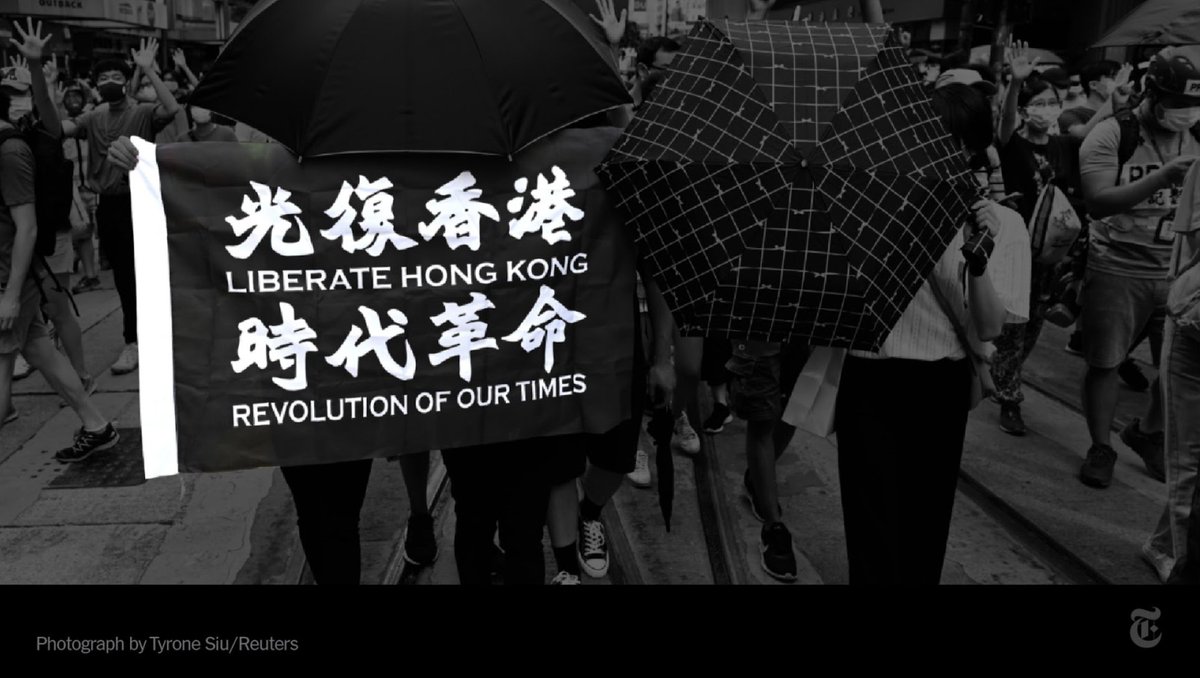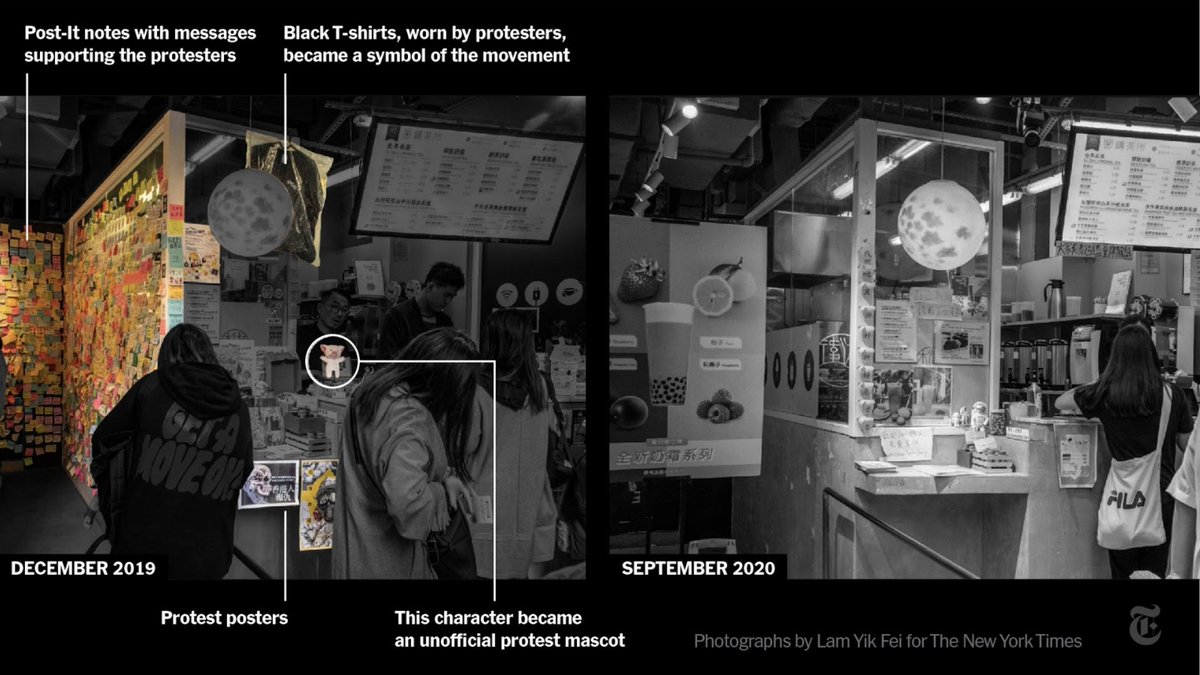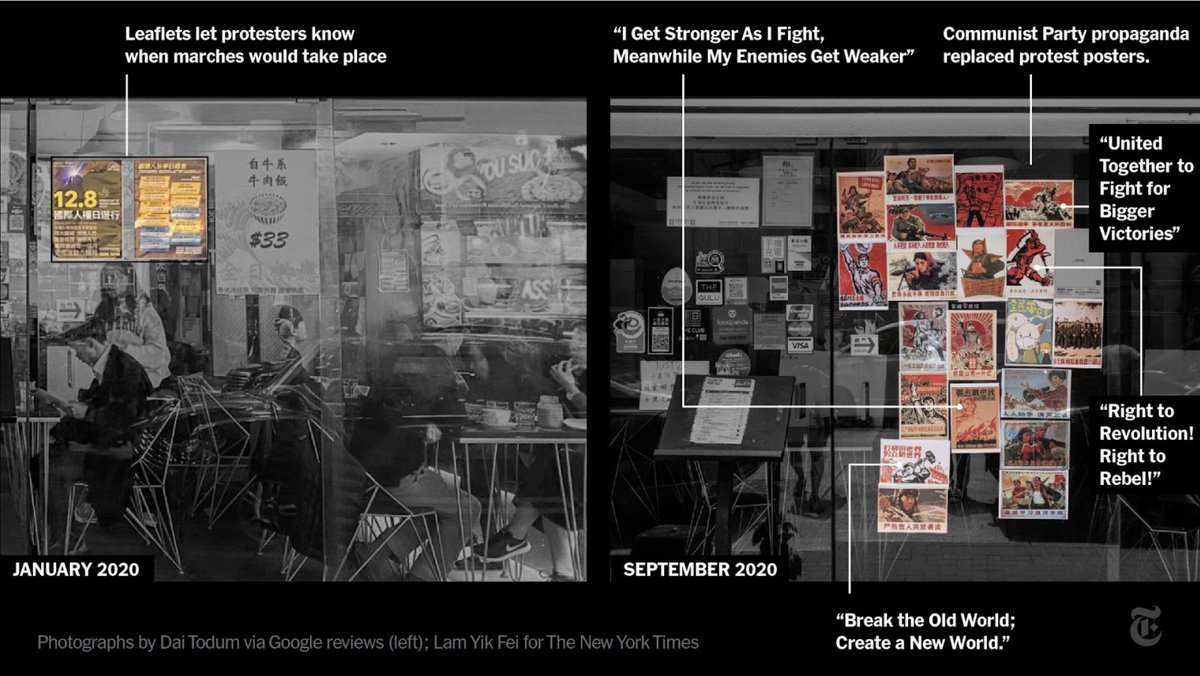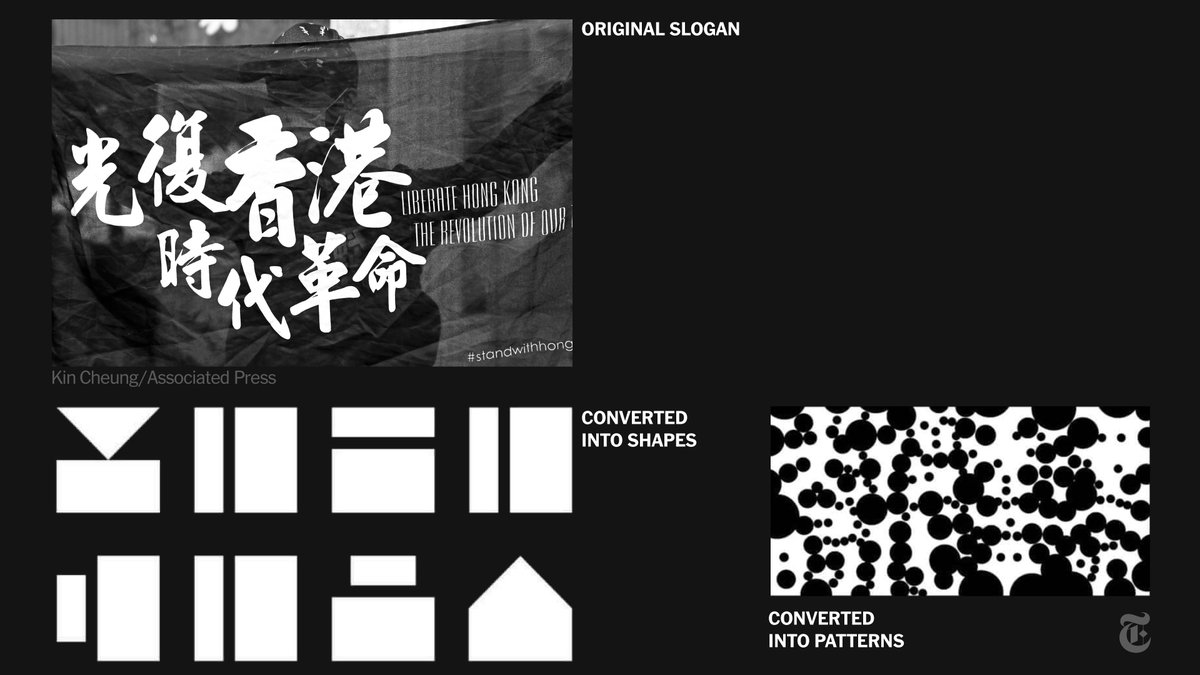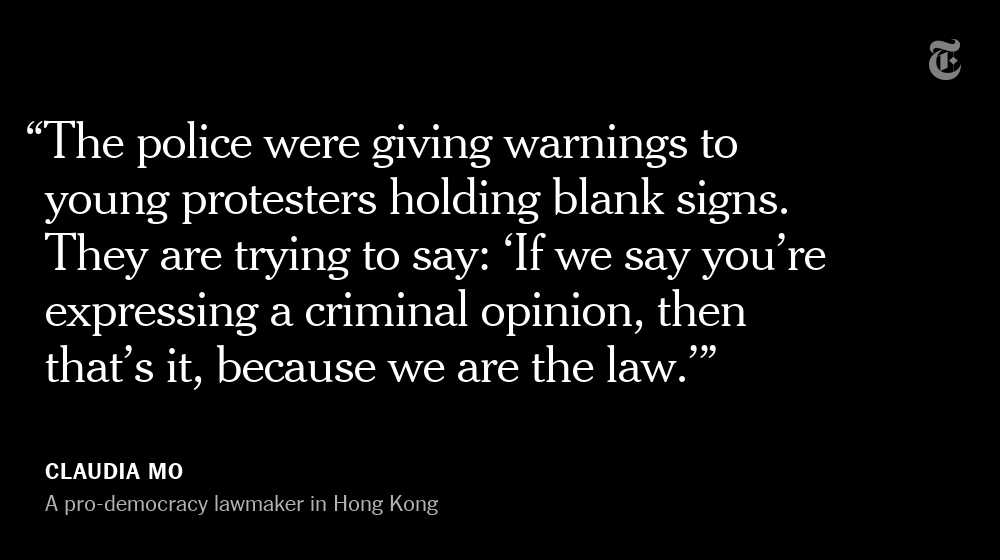There are some things you can no longer freely say in Hong Kong. Or write. Or tweet. Or draw. Or sing. https://nyti.ms/2F6rhPq ">https://nyti.ms/2F6rhPq&q...
Hong Kong was once a bastion of free speech, home to political refugees, rights groups and international media.
But a security law passed on June 30 instantly altered people’s lives. What was once protected free speech can now be criminalized.
But a security law passed on June 30 instantly altered people’s lives. What was once protected free speech can now be criminalized.
Artists, journalists and activists in Hong Kong risk criminal prosecution.
The police have arrested more than 20 people under the new law, some who carried signs like this one. The law lays out political crimes sometimes punishable by life imprisonment. https://nyti.ms/2F6rhPq ">https://nyti.ms/2F6rhPq&q...
The police have arrested more than 20 people under the new law, some who carried signs like this one. The law lays out political crimes sometimes punishable by life imprisonment. https://nyti.ms/2F6rhPq ">https://nyti.ms/2F6rhPq&q...
This bubble tea shop once proudly supported Hong Kong’s protest movement. Now, the owners have removed all their pro-democracy ephemera. https://nyti.ms/2F6rhPq ">https://nyti.ms/2F6rhPq&q...
This Hong Kong restaurant used to put up signs advertising the dates and times of the latest protests. Now, they’ve been replaced by Mao-era propaganda posters – a sly criticism of the security law. https://nyti.ms/2F6rhPq ">https://nyti.ms/2F6rhPq&q...
People have sought out creative ways to skirt the law.
When the Hong Kong government said the protest slogan, "Liberate Hong Kong. Revolution of Our Times," could be seditious, activists converted the message into shapes and patterns. https://nyti.ms/2F6rhPq ">https://nyti.ms/2F6rhPq&q...
When the Hong Kong government said the protest slogan, "Liberate Hong Kong. Revolution of Our Times," could be seditious, activists converted the message into shapes and patterns. https://nyti.ms/2F6rhPq ">https://nyti.ms/2F6rhPq&q...
Hong Kong activists carry blank pro-democracy signs or ones with coded messages. They play protest songs with no lyrics. But they fear that even such workarounds may be criminalized. https://nyti.ms/2F6rhPq ">https://nyti.ms/2F6rhPq&q...
“Staying in Hong Kong could become dangerous,” said Lau Kwong Shing, an illustrator known for artwork supporting pro-democracy protests.
“What I illustrate is just an expression of my thoughts, but that might now come with legal consequences.” https://nyti.ms/2F6rhPq ">https://nyti.ms/2F6rhPq&q...
“What I illustrate is just an expression of my thoughts, but that might now come with legal consequences.” https://nyti.ms/2F6rhPq ">https://nyti.ms/2F6rhPq&q...

 Read on Twitter
Read on Twitter